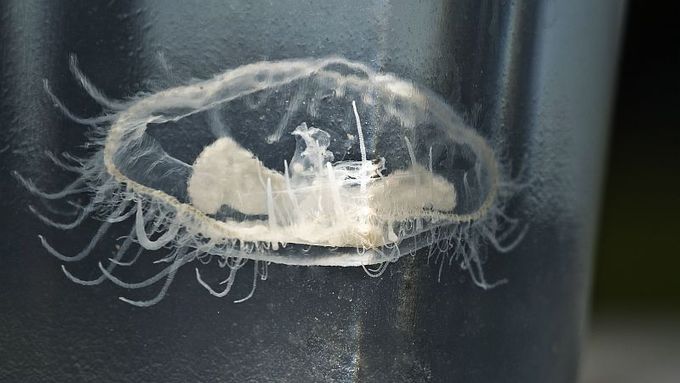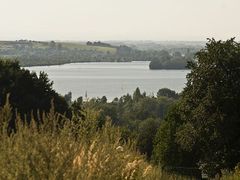Hlučín - If you have been ever stung by a jellyfish, then all you want to do is stay away.
These translucent umbrella-shaped creatures are a nightmare for tourists in summer resorts, as they can ruin the best of summer days. Their sting can be painful, causing a burning sensation.
But while in the seaside they are mostly unwanted, in the lake of Hlučín everybody seems to be enjoying their unexpected company.
A rare species of medusa has appeared in surprisingly high numbers at the beginning of August in the Czech Republic. They live in a gravel-pit lake in Hlučín, near the town of Opava in North Moravia.
The locals that often come to have a swim in the lake have have lately noted whole swarms of the extraordinary freshwater jellyfish.
Real spectacle
In contrast to their sea ´relatives´, the freshwater medusae are smaller and absolutely harmless to human beings.
The rare species have become a real spectacle for the Hlučín locals. "I have been frequenting this place for decades, but jellyfish living in this lake? I have never heard of this before," a pensioner from Ostrava said enthusiastically. He himself observed the medusae population floating in the lake.
For biologists who focus on water animals this species is not unknown, but is considered extremely rare.
For local hygienic officials who discovered the rare species of jellyfish during a routine water quality check, it was a great surprise, too.
"What happened here is an extraordinary thing, indeed, as this water species is very unique. It can grow up to three centimeters," head of local hygienic station in Ostrava Helena Šebáková informed Aktuálně.cz.
"It is for the first time ever we have registered jellyfish in our region," she added.
Interesting life (cycle)
A few years ago, hydrobiologist Adam Petrusek described the life cycle of the freshwater jellyfish for the ABC magazine.
"A tiny floating larva hatches from an impregnated egg, then it gets attached to the bottom of the lake. Subsequently a translucent polyp of few millimeters evolves from the larva... It may live for a few years in this stage," Petrusek explained.
Only when the temperature of the water rises up to more than 20C degrees, polypes may evolve into a jellyfish. "It may grow up to three centimeters, swim freely in the water and hunt plankton with its stinging tentacles."
For the first time
Petrusek claimed that on the territory of what is now the Czech Republic, the freshwater jellyfish were noted for the first time in 1930 in the Vltava river. Currently, they may be observed in flooded quarries or dam.
Jindřich Duras from Povodí Vltavy (Vltava basin) state company said though that emergence of freshwater jellyfish will always remain an extraordinary even in the Czech Republic.
"I don't expect Czech lakes and ponds to be filled with jellyfish one day," Duras added.







